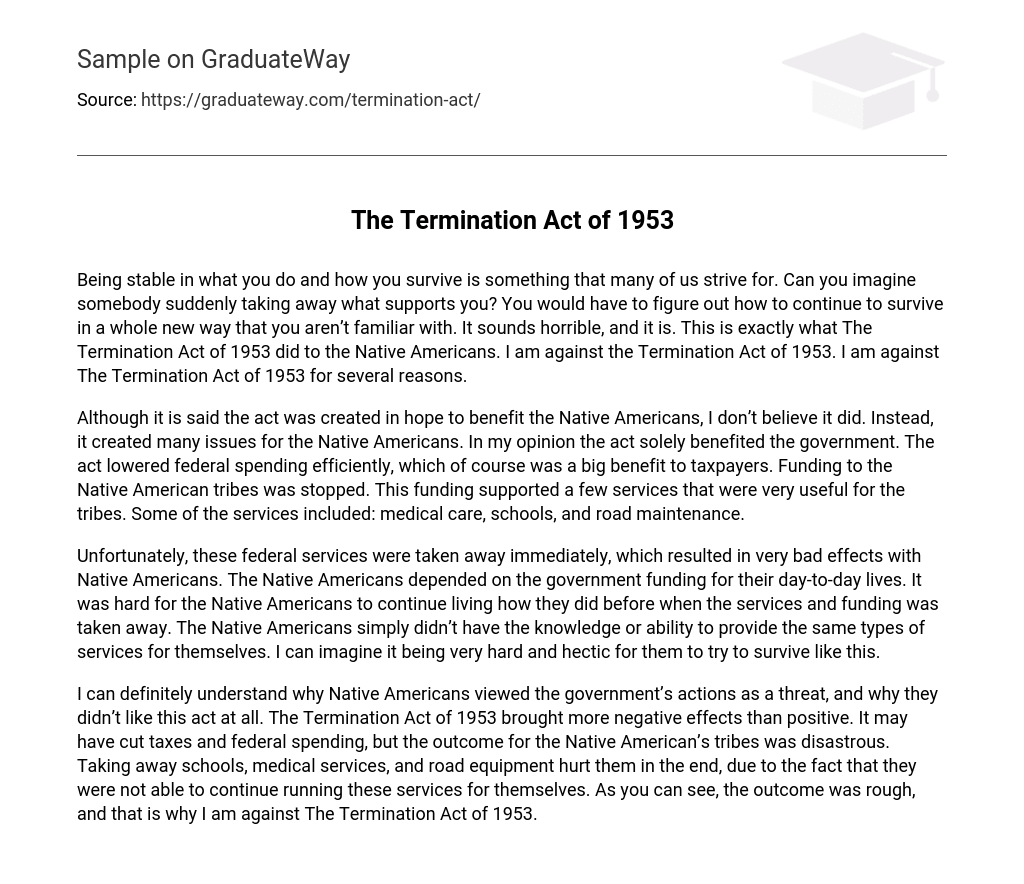Being stable in one’s actions and means of survival is a sought-after objective for many individuals. Just imagine the abrupt removal of the very pillars that hold you up. Suddenly, you are forced to adapt and find new ways to survive, ones that are completely unfamiliar to you. The thought alone is dreadful, and in reality, it is truly devastating. That is exactly what occurred when the Native Americans were subjected to The Termination Act of 1953. Personally, I stand firmly against this act for various reasons.
Despite claims that the act was intended to benefit Native Americans, I am skeptical of its actual impact. On the contrary, it gave rise to numerous challenges for Indigenous communities. From my perspective, the act primarily served the interests of the government. It successfully reduced federal spending, which undoubtedly benefited taxpayers. However, it also resulted in the discontinuation of funding for Native American tribes, consequently eliminating crucial services such as medical care, schools, and road maintenance.
Regrettably, the Native Americans faced detrimental consequences when the federal services they relied upon were suddenly withdrawn. These services were crucial for their daily existence, and their discontinuation made it exceedingly difficult for them to maintain their previous way of life. Without the necessary knowledge or resources, they were unable to compensate for the loss and provide equivalent services independently. Consequently, survival must have been incredibly arduous and chaotic for them.
I comprehend why Native Americans perceived the government’s actions as menacing and disliked this act greatly. The Termination Act of 1953 had predominantly detrimental consequences rather than positive ones. Although it may have decreased taxes and federal expenditures, it had disastrous ramifications for Native American tribes. Depriving them of schools, medical services, and road equipment ultimately harmed them because they were unable to sustain these services independently. Hence, the outcome was harsh, which is why I oppose The Termination Act of 1953.





